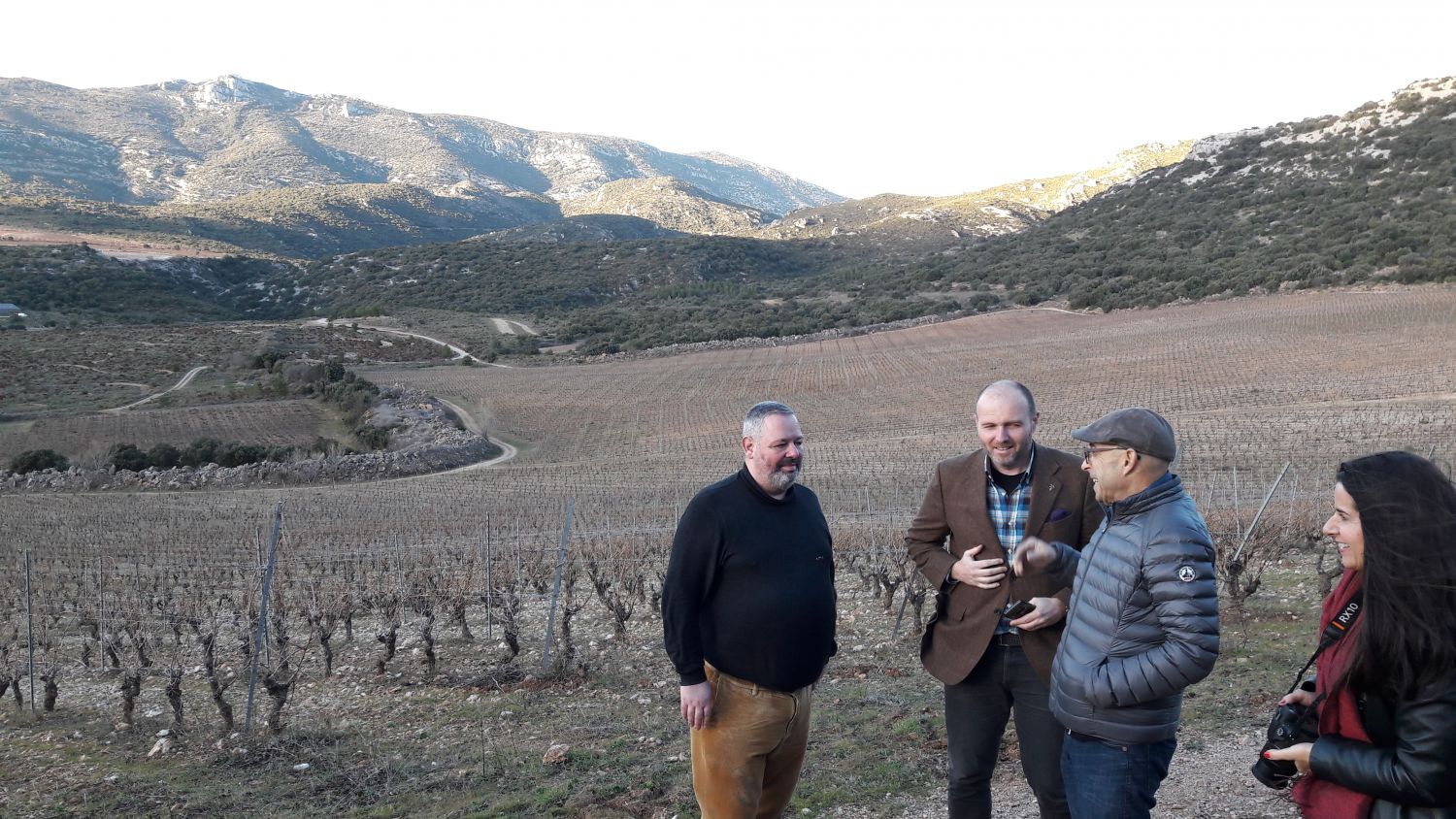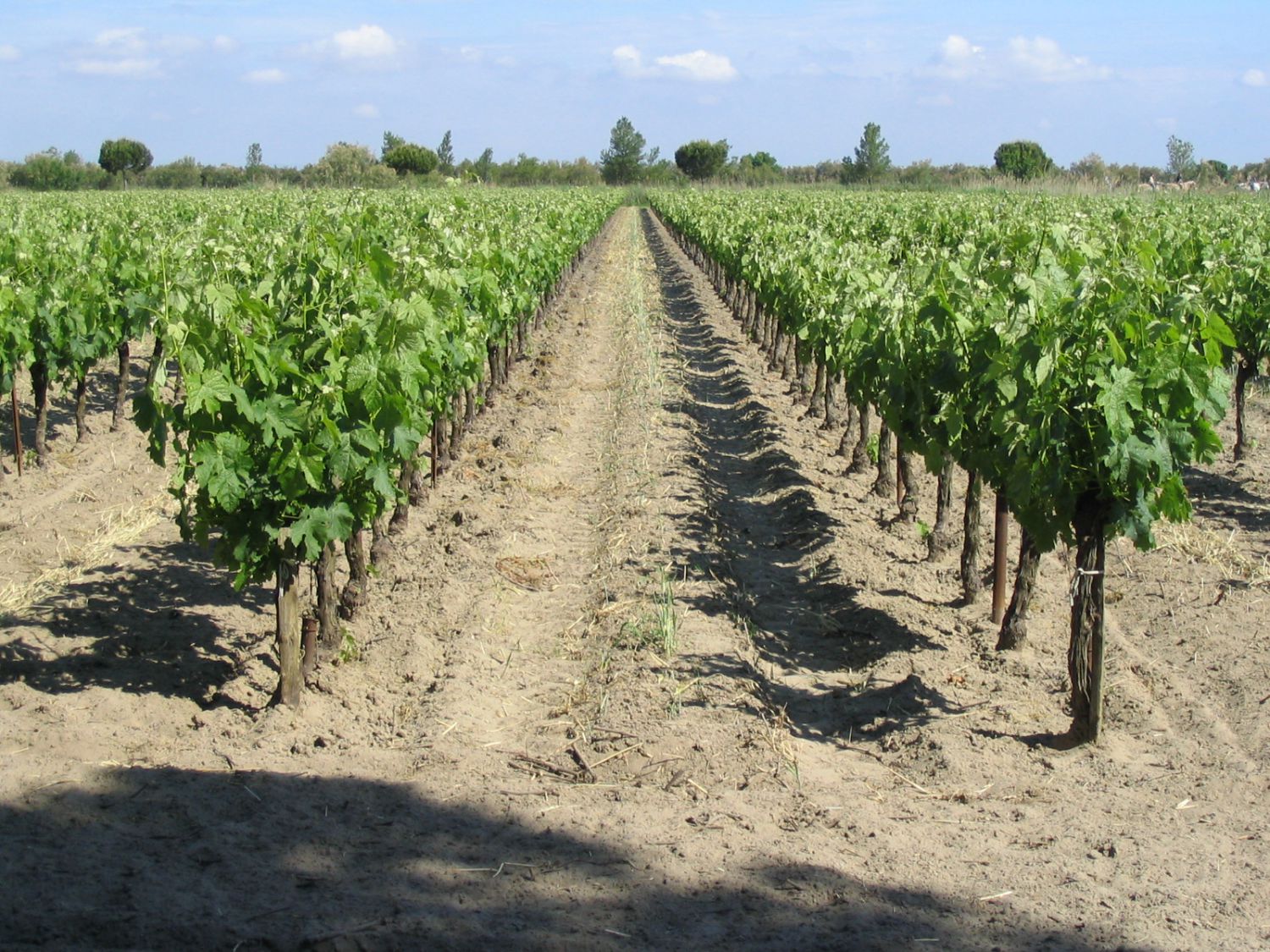About organic wine
Organic wine production is governed by a European regulation which specifies the rules of production, processing, labelling and import of organic products. This regulation has been in force since 1991 and was updated in 2007-2008.
From 1991 to July 2012, the regulation was only concerned with cultivation techniques applied in growing grapes and not the vinification. From the first August 1, 2012, the European regulation was extended to organic wine making, permitting the sale of wines labelled as organic wine.
A brief history
The history of organic farming viticulture began with organic farming between the two world wars. Several movements emerged from this period.
The biodynamic movement was born in Germany in 1927 and became the first to develop a brand "Demeter" certifying the origin of its products. It boasts a broad understanding of human nature and life. The second source is the organic farming created in Britain in the 40s and which promotes composting and the return to independent farming.
In France, the organic farming developed in the 60s under the leadership of companies like Lemaire-Boucher and Nature et Progress applying the approach of integrating producers (sales advice and products). During the 70s, organic farming was adopted by environmentalist protest movements. From the 80s, many organic farmers are distancing themselves from the early theories, and philosophical references are less frequent. The Renaissance of the organic farming movement was marked by the creation of different organizations (IFOAM 1972, FNAB 1978 GRAB 1979, ITAB 1982). Organic farming was officially recognized in France in 1981 and in Europe in 1991. At a European level, the CAP reform of 1992 created organic farming conversion aids to be a powerful driving force for the transition to organic for many growers.
Definitions of organic viticulture
There are many definitions of organic viticulture:
- Regulatory definitions: organic viticulture is governed by the European CEN regulations 834/2007 and RCE 889/2008 for all EU organic products (see details under regulations).
- Agricultural: For the growers, the aim is to maintain soil fertility, to not use synthetic pesticides, chemical fertilizers, GMOs and to be, such is possible, independent as regards soil fertility
- Wine making: the wine making regulations defines permitted and prohibited practices (see details under regulations)
- Ethical: values highlighted are ecology, preservation of the earth, solidarity and equity
- Economic: some emphasize the human scale businesses, fair prices and a local distribution
Motivations for converting to organic viticulture
Motivations for converting to organic viticulture are varied:
- The protection of the winemaker's health has historically been the primary cause of transition to organic farming. Winemakers are frequently exposed to the risks of illness and death associated with the use of pesticides. Consumer protection is also a concern and includes minimising pesticide residues in wine.
- Valuing the expression of one's terroir, promoting positive interactions between soil, climate and plants. The organic approach is the logical outcome of a process of environmental protection, appreciation of the capacity of the terroir and the development of a very typical product
- Conversion can be part of a company project (construction of a cellar, increasing the market share ...) and can go hand in hand with new business objectives
- Environmental protection. With just 3% of the agricultural area, conventional French viticulture uses 20% of the quantities of pesticides (mainly fungicides) (source report IFEN 2003-2004). This has different consequences particularly on fauna and flora, as well as on the quality of surface water and groundwater. Organic viticulture has banned the use of synthetic pesticides and GMOs. Regarding the latter, the risk is minimal because the moment the only work currently underway on vines is on the search for a rootstock resistant to grapevine fanleaf virus. A very important advantage of organic viticulture is the lack of use of herbicides which are the main pollutant molecules found in water.
- Ethical reasons are often put forward: environmental respect, human links to the land, zero pollution production, respect for fauna and flora, biodiversity preservation etc.
- The existence of a market is an attraction.
- Conversion aids help to cover a portion of the additional costs
What does organic viticulture do?
The objectives are:
- To produce quality wines. This remains the prime objective with a more stringent production setting than others (no synthetic pesticides or mineral fertilizers, non-GMO);
- To protect the environment and water resources; protecting water quality in wine-growing zones is a very important issue.
- To diversify and segment the wine supply to meet consumer demands.
- To create and maintain jobs in rural areas. Organic farming is a form of agriculture that generally requires more labour.
The importance of organic viticulture in the wine region
Organic viticulture is an important part of the overall European organic production. It covers a land area of more than 250,000 ha, that is, larger than the size of the Bordeaux vineyards.
Organic viticulture is practised in all wine-producing countries (Europe, America, South Africa, and Australia). In the USA, organic viticulture is governed by specific regulations: the NOP. In France in 2018, according to Agence Bio statistics, organic viticulture is now done on 6726 farms and 94020 ha of which 65298 ha is organic and 28722 ha is in conversion. This represents more than 12 % of French vineyards. The main producing regions are Occitanie, PACA and Aquitaine. Occitanie has 2138 producers and 34827 ha in organic+conversion.

